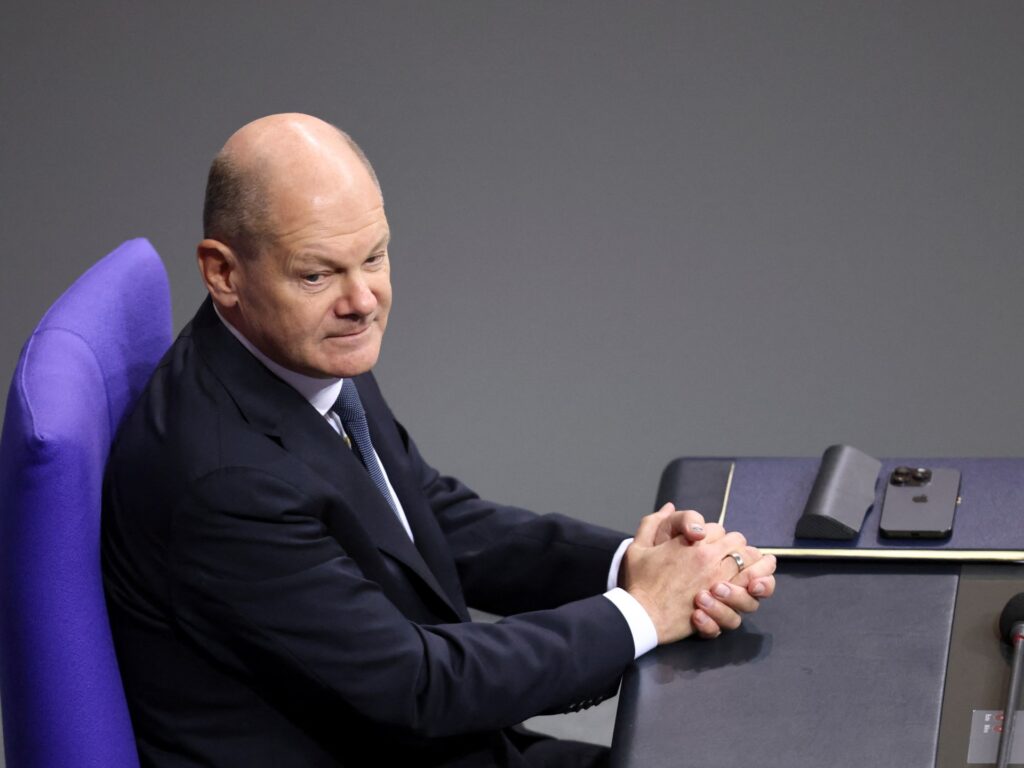Elections will be held on February 23, seven months earlier than scheduled, after the collapse of Olaf Scholz’s coalition government.
German Chancellor Olaf Scholz was rejected in a vote of confidence in parliament, forcing a snap election to be held seven months earlier than planned.
Monday’s vote came after Scholz’s fragile coalition government collapsed, triggering a political crisis in the European Union’s biggest economy.
Scholz won the support of 207 members of the 733-member House of Representatives, but 394 voted against the bill and 116 abstained. This puts them far short of the 367-member majority required for victory.
Elections for the new parliament will be held on February 23rd.
The three-party coalition government was shaken by Scholz’s dismissal of Finance Minister Christian Lindner in November.
Mr. Lindner’s pro-business Liberal Democrats then left the coalition government, taking the parliamentary majority from Mr. Scholz.
Scholz’s centre-left Social Democratic Party (SPD) and the Green Party will continue to run the country without parliamentary support until a new government is formed.
Monday’s action comes after months of infighting over fiscal priorities and debt spending.
Earlier this month, neighboring France’s hung parliament overthrew the country’s prime minister in a vote of no confidence.
In response to the crisis in France, President Emmanuel Macron appointed centrist politician François Bayrou as the new prime minister without holding new elections. However, it highlighted the deepening political rifts in EU countries amid economic instability and the war in Ukraine.
In Germany, Scholz, who previously served as Hamburg’s mayor and finance minister before taking over as head of a new government in 2021, accused the Free Democratic Party of trying to block investment in the country.
When he took over from Chancellor Angela Merkel three years ago, he was seen as a candidate to continue.
Position next year’s election as an opportunity for voters to set a new direction and vote.
A choice between a future of growth or a future of austerity.
Scholz said if given a second term, he would invest heavily in Germany’s creaky infrastructure and not cut spending as conservatives want.
Scholz and Friedrich Merz, leader of the conservative Christian Democratic Union, who polls say is likely to become the next chancellor, clashed in a debate before Monday’s vote, accusing each other of incompetence.
“If you’re short-sighted, you might save money in the short term, but you won’t be able to pay the mortgage on your future,” Scholz told lawmakers.
Mr. Merz told Mr. Scholz that his spending plans would burden future generations and accused the prime minister of failing to fulfill his rearmament commitments since Russia’s invasion of Ukraine.
Conservative leaders have been vocal supporters of giving Ukraine German-made Taurus missiles that could be used to attack targets inside Russia.
Mr. Scholz, by contrast, has refused to supply Kiev, suggesting such a move could push Berlin into a more violent conflict with Moscow.
Both Mr. Scholz and Mr. Merz are staunch supporters of Israel. Germany is one of Israel’s biggest arms suppliers, and Israel has been accused by human rights groups of committing genocide in Gaza.
Ahead of February’s vote, the Conservatives maintain a comfortable lead over the SPD in most opinion polls, although the gap is narrowing by more than 10 points.
The far-right Alternative for Germany (AfD) is slightly ahead of Scholz’s party, with the Greens in fourth place.
Mainstream parties reject the AfD’s rule, but its presence complicates parliamentary politics and increases the possibility of an unwieldy three-way coalition like Scholz’s.
Meanwhile, the prime minister outlined a list of emergency measures that could be passed before the election, including an 11 billion euro ($11.6 billion) tax cut and an increase in child benefits.



